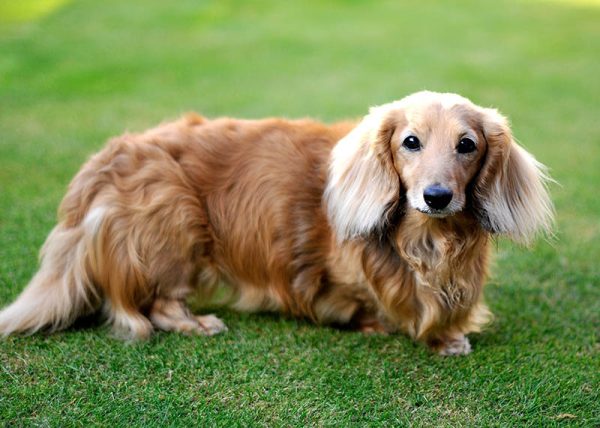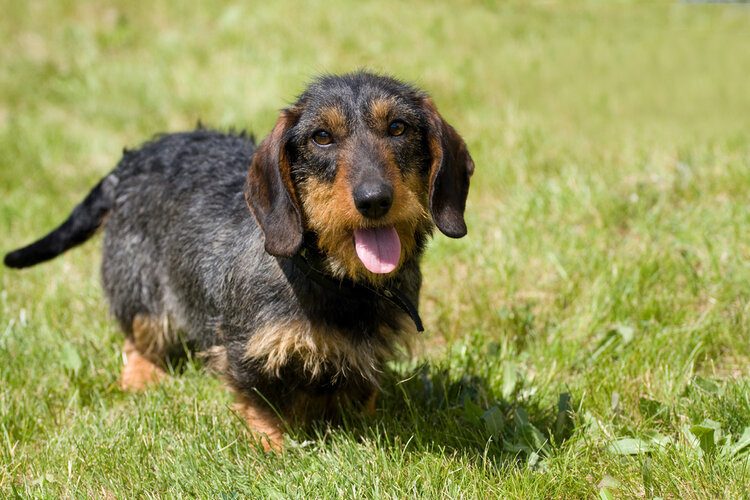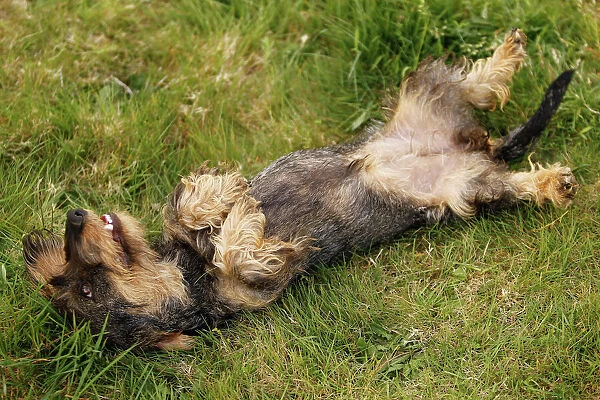dachshunds, with their distinctive long bodies and short legs, have been beloved by many for centuries. These energetic and charismatic dogs, often referred to as sausage dogs, have captured the hearts of dog lovers worldwide. However, the question remains: are Dachshunds good family dogs? The answer is not a simple yes or no. With any breed, there are pros and cons to consider. In this comprehensive guide, we will delve into the world of the Dachshund, exploring their history, temperament, health, care requirements, and ultimately, whether they are the right fit for your lifestyle.
Contents
Dachshund Temperament and Personality Traits

Dachshunds are known for their lively personalities and strong wills, which can make them both endearing and challenging at the same time. Their hunting instincts make them fearless and determined, but their affectionate nature also makes them great companions. Let’s take a closer look at the different aspects of Dachshunds’ temperament and personality.
Intelligence and Trainability
Dachshunds are intelligent dogs and can be trained with patience and consistency. However, they can also be stubborn and independent, which may make training more challenging. It’s essential to establish yourself as the pack leader and use positive reinforcement techniques to train your Dachshund effectively. They respond well to praise and treats, so be sure to reward them for good behavior. Keep training sessions short and engaging to keep your Dachshund’s attention.
Socialization and Aggression
As natural hunters, Dachshunds can exhibit aggressive behavior towards other animals if not properly socialized from a young age. They may also show aggression towards unfamiliar people, making early and consistent socialization crucial. Dachshunds can also develop separation anxiety if not adequately trained and can become destructive when left alone for extended periods. It’s important to teach them early on that being alone is okay and provide them with plenty of mental and physical stimulation.
Energetic and Playful
Despite their small size, Dachshunds are energetic dogs that require regular exercise and playtime. They have high energy levels and are always eager to play and explore. Dachshunds make great companions for active families who enjoy outdoor activities such as hiking or running. Their playful nature also makes them ideal playmates for children, although they may not do well with rough play due to their delicate backs.
Affectionate and Loyal
Dachshunds are incredibly affectionate and form strong bonds with their owners. They love to cuddle and will often seek attention from their humans. As pack animals, they thrive on attention and can become distressed if left alone for extended periods. Dachshunds are known for being “velcro” dogs, meaning they like to stick close to their owners at all times. This trait can make them excellent therapy dogs, providing comfort and companionship to those in need.
Training and Exercise Needs for Dachshunds

As previously mentioned, Dachshunds are intelligent dogs that can be trained, but it does require patience and consistency. Early training is crucial to ensure your Dachshund grows up to be a well-behaved and well-adjusted dog. In addition to basic obedience training, it’s essential to train your Dachshund to walk on a leash properly. Their hunting instincts may cause them to chase after small animals, so leash training is necessary for their safety.
Exercise is also essential for Dachshunds to maintain good physical and mental health. Despite their short legs, they are athletic dogs with high energy levels. They require daily walks and playtime, with at least 30 minutes of exercise per day. It’s essential to vary their activities and provide mental stimulation, such as puzzle toys or games of hide-and-seek, to keep them entertained.
Health Concerns and Lifespan of Dachshunds

Like all dog breeds, Dachshunds are prone to certain health conditions that potential owners should be aware of. One of the most notable health concerns for Dachshunds is intervertebral disc disease (IVDD), which occurs when the discs between the vertebrae in their spine become damaged or ruptured. This condition is more common in Dachshunds due to their long backs, but it can also affect other breeds.
Obesity is another prevalent health issue among Dachshunds. Their small size and low activity level make them prone to weight gain, which can put excess strain on their backs and joints. It’s important to monitor their diet and ensure they are getting enough exercise to maintain a healthy weight.
Dachshunds have an average lifespan of 12-16 years, although some can live up to 20 years with proper care. As with any breed, regular vet check-ups, proper nutrition, and exercise can help extend their lifespan and keep them healthy.
Grooming and Care Requirements for Dachshunds

Dachshunds come in three coat varieties: smooth, wirehaired, and longhaired. Each coat type requires specific grooming needs.
Smooth Coat Dachshunds
Smooth coat Dachshunds have short, shiny hair that is easy to maintain. They require weekly brushing to remove loose hair and dirt. Regular baths are not necessary unless your Dachshund gets dirty or has a skin condition. It’s also important to regularly trim their nails and clean their ears to prevent infection.
Wirehaired Dachshunds
Wirehaired Dachshunds have a double coat, with a soft undercoat and a rough outer coat. They require more frequent grooming than smooth coat Dachshunds, with brushing at least twice a week to prevent matting and remove dead hair. Professional grooming may also be necessary every few months to maintain their coat’s shape and texture.
Longhaired Dachshunds
Longhaired Dachshunds have a silky, long coat that requires the most maintenance out of the three types. They need daily brushing to prevent tangles and mats, as well as regular professional grooming to maintain their coat’s length and appearance.
All Dachshund breeds are prone to dental issues, so it’s essential to brush their teeth regularly and provide them with dental chews or toys to help keep their teeth clean.
Finding the Right Dachshund for You

Dachshunds come in two sizes: standard and miniature. While both sizes share the same personality traits and health concerns, there are some key differences to consider when choosing which size is right for you.
Standard Dachshunds can weigh up to 35 pounds and stand at around 8-9 inches tall. They are better suited for families with older children due to their larger size and may not do well in small living spaces. Miniature Dachshunds, on the other hand, weigh no more than 11 pounds and stand at around 5-6 inches tall. They are an ideal choice for those living in apartments or smaller homes and do well with children of all ages.
When looking for a Dachshund, it’s important to research reputable breeders to ensure you are getting a healthy puppy from a responsible source. Alternatively, you can adopt a Dachshund from a local rescue or shelter. Whichever option you choose, be sure to ask about the dog’s history, temperament, and any known health concerns.
Conclusion
So, are Dachshunds good family dogs? The answer is yes, with some caveats. Dachshunds make excellent companions for active families who can provide them with the exercise and mental stimulation they need. They are affectionate, playful, and loyal, but they do require proper training and socialization from a young age to avoid behavioral issues. It’s also crucial to be aware of their potential health concerns and be prepared to provide them with the necessary grooming and care.
Ultimately, the decision to bring a Dachshund into your family should not be taken lightly. Remember to do your research, consider all factors, and make an informed decision based on your lifestyle and ability to provide for a Dachshund’s needs. With proper care and love, Dachshunds can make wonderful family dogs and bring joy to your home for many years to come.
